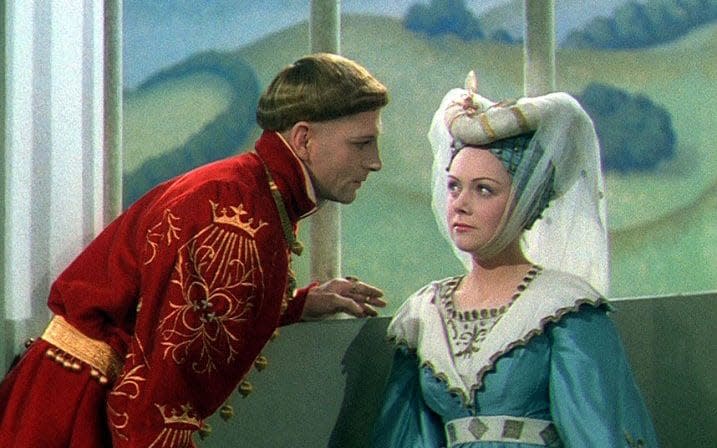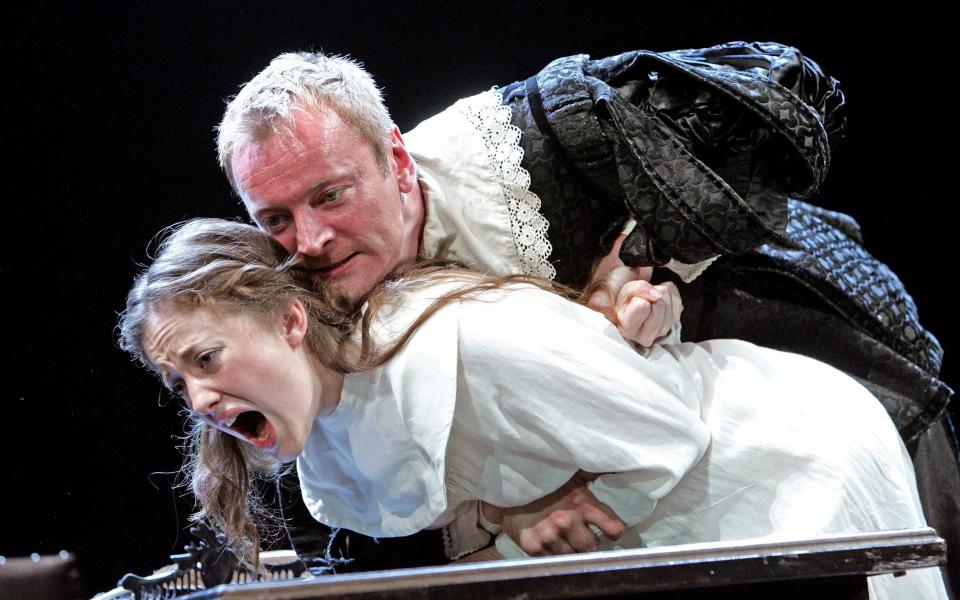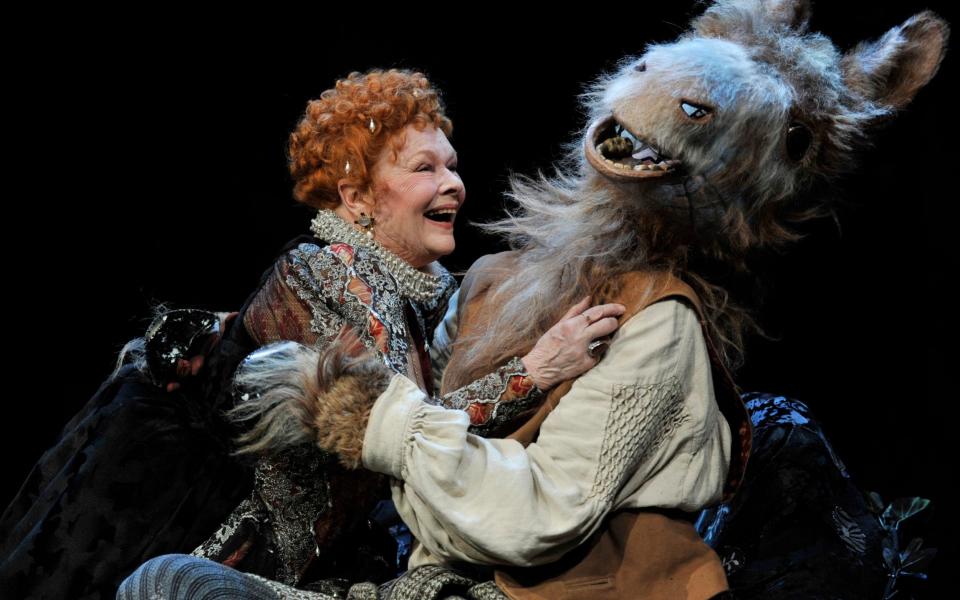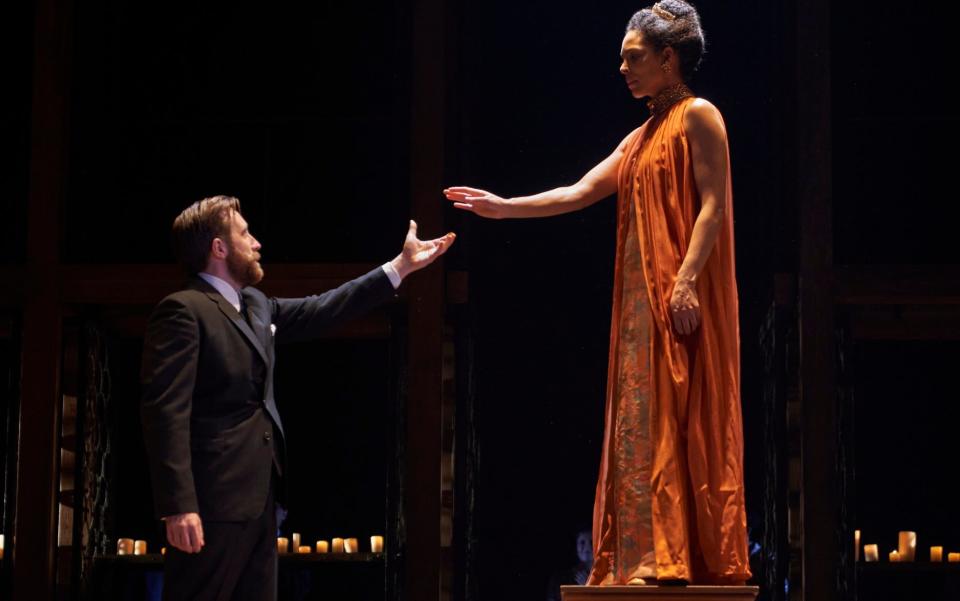We don’t need to be kept ‘safe’ from Shakespeare, thank you very much

Another week, another potty development in the ongoing clash between the culture wars and the role of art. Yesterday the academic Hailey Bachrach, a researcher at the University of Roehampton, argued in an interview with the Sunday Telegraph that scenes in Shakespeare's Richard III and Henry V, in which female characters are married without explicitly giving their consent, could be troubling to modern audiences.
“If Shakespeare is being more regressive and less careful than other writers… it can make [him] problematic,” she said. “No matter what Shakespeare intended, it is experienced by modern actors and modern audiences. It could potentially be triggering.”
I don't know about you but whenever I witness the extraordinary exchange between Richard and Lady Anne in Richard III, the fact that Anne doesn't explicitly say yes to the murderous hunchback Richard is, for me, precisely the point of the entire scene.
Rather than prompt a trembling reaction to the fact of historic misogyny that requires me to dash off in search of smelling salts to calm my nerves, I am instead reminded once again of Shakespeare's brilliance at dramatising the grotesque psychopathy of ruthless power and revealing it anew in all its ugly truth. Imagine if Anne had instead clapped her hands in glee at his proposal – made, don't forget, while the cortege of her husband King Henry VI, killed by Richard, is passing in the street – and run off to call the caterers. I think most people would have found her “consent” very problematic indeed.
Bachrach may well be well intentioned in her arguments but they seem to display a total lack of understanding of how narrative actually works. A Midsummer Night's Dream is another play to have provoked her concern since, she argues, Titania has sex under the “influence of mind-altering drugs” and is thus too out of it to give her consent' to Bottom when he turns up in the form of an ass and the blissed-out pair frolic joyfully among the trees.

Sorry to spell it out, but the very purpose of the drug that Puck administers to Titania and to the sleeping lovers in the forest is to enable Shakespeare to explore the realm of desire and transgression that specifically lies beyond our conscious control. Shakespeare's Dream is the Bard's response to Euripides' Bacchae, a dark and dangerous play that asks deeply troubling questions about the mayhem, the violations, yes, even the liberating behaviours that can erupt when all civilising norms are stripped away.
Order is restored of course but as women Titania, Hermia and Helena have all had truths about themselves revealed to them – truths that the everyday world, perhaps even themselves, cannot accommodate. Knowledge has replaced innocence. The absence of consent in this process is itself the point.
Most audiences understand this. They are sophisticated enough to understand that Shakespeare is not condoning the drugging of women but allowing us to realise through his use of extreme plot device their lack of sexual agency. Similarly they understand what is going on in the final scene of Henry V in which the victorious young king seals the deal with France by marring the French princess Catherine.
Catherine never says yes to this – in fact, after Henry kisses her, she never speaks in the play again. Arranged marriages were a fact of geopolitical power in 15th century Europe which is when the play is set. I think most modern audiences can deal with this without feeling too traumatised. Bachrach even suggests that an actress playing Catherine might find the character's lack of consent ' “disempowering”, doubly so if they are young. In which case may I respectfully suggest said actress is perhaps not in the right job.

This is not to dismiss the very real issues that have always surrounded women and power, but to make the point that just because a play exposes these imbalances doesn't mean the play condones them. This is so obvious it's almost exhausting to have to spell it out, yet Bachrach's argument is part of a growing academic trend that argues against plays that don't conform to an ideologically sanitised version of the world but show us, in ways that are intended to make us feel deeply uncomfortable, its many aberrations and abuses instead.
Shakespeare seems to get it in the neck in this regard more than most playwrights, I suspect because his plays refuse to present the world in crude binary opposites in the way the sorts of people who make these sorts of arguments would evidently seem to prefer. For Bachrach's comments buy into the invidious notion that art needs in some way make us feel safe, when one of its main purposes is to make us feel the opposite.
Art is meant to be triggering. It's meant to prompt feelings of grief, sorrow, anger, rage. Imagine standing in front of Guernica and not being triggered because Picasso had been anxious about the impact on those who had lived through the Spanish Civil War. Bachrach, however, seems to want to prioritise individual sensitivities over art's capacity for collective truth.

Good art will always accommodate individual sensitivities in its depiction of collective truth. Most theatre practitioners are blindingly aware of the so called “problematic” nature of Shakespeare. It's why they return to him over and over again. Rather than "gloss over" the issue of consent in Shakespeare, as Bachrach argues, several productions in recent years have explicitly highlighted it.
Perhaps Bachrach didn't catch Erica Whyman's recent RSC production of The Winter's Tale which ends with King Leontes miraculously reunited with the wife who, 17 years previously he essentially slut shamed in a jealous rage and sent her to her death. In her production there's no tear-jerking reunion between husband and wife, rather Kemi Bo Jacob's resurrected Hermione looks in abject horror at the husband who so abused her. And clearly, she didn't see Ralph Fiennes's Richard III at the Almeida in 2016 in which the wooing of Anne was made explicitly violent. No glossing over the issue of consent there.
Mainly though, I'm sick and tired of people suggesting we need to somehow be protected from art. It's infantilising and patronising and does us a huge cultural disservice. Great art holds a mirror up to nature. In return, it asks us to look at it without flinching. Otherwise, it serves no function at all.

